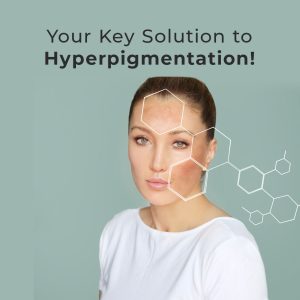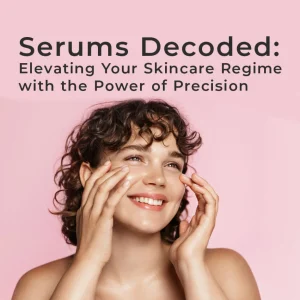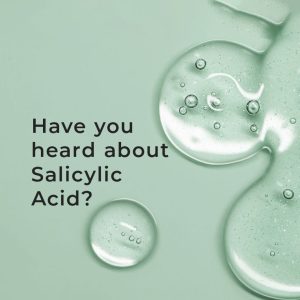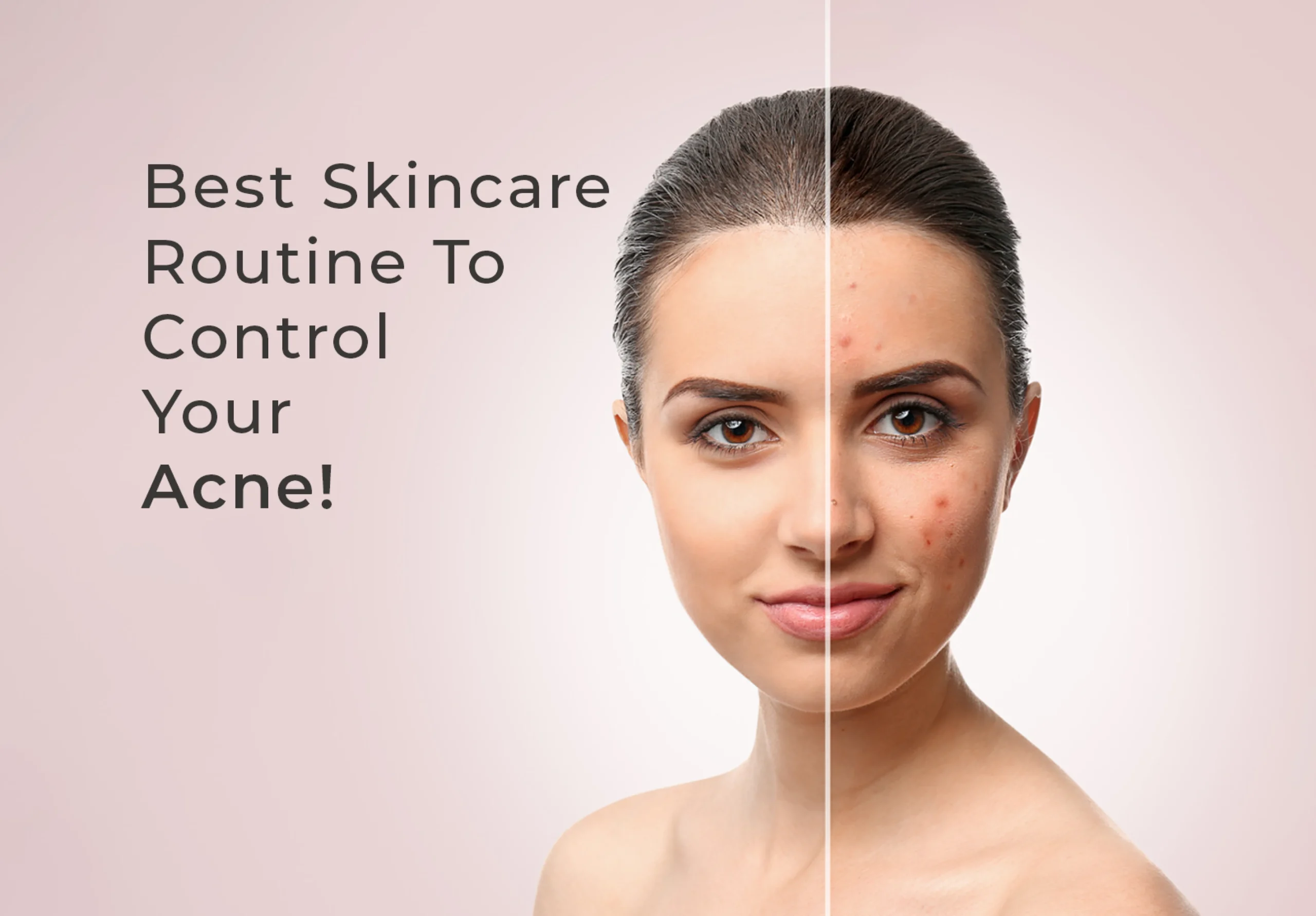
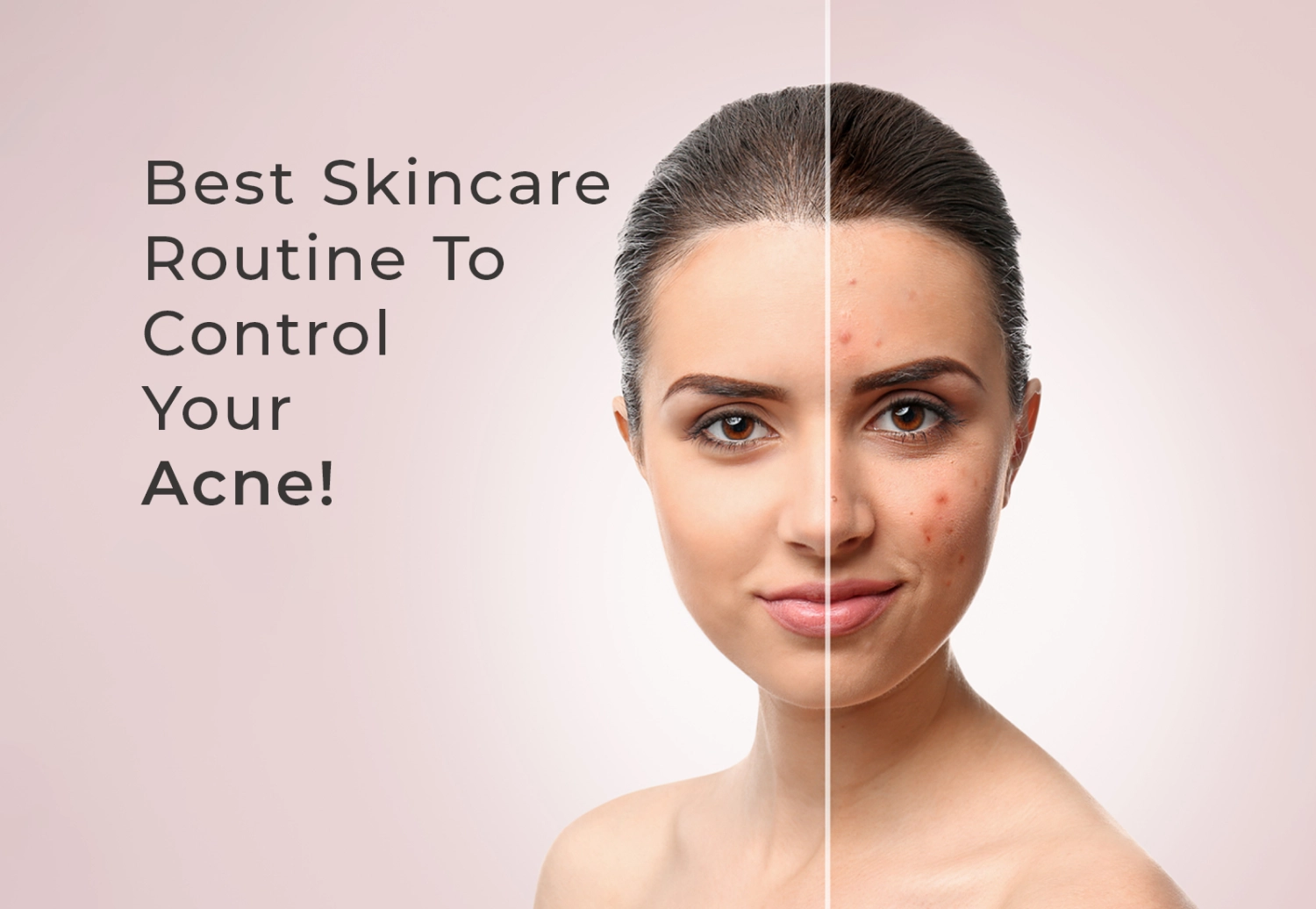
Blog
Need to Know Why Acne on Your Face? Best SkincareRoutine To Control Your Acne!
- By admin on
- March 7, 2024
Have you ever experienced a situation where you have an important meeting or a party to attend, but a pimple appears out of nowhere on your face? Well, you are not alone.
Acne is a common condition that affects almost everyone at some point in their life. It’s caused by blocked pores due to excess oil, dirt, or dead skin cells—and pimples are just one symptom of this condition.
If left untreated, acne can become chronic and lead to scarring on the face (or other parts of the body).
However, there remains a need for a comprehensive understanding of acne. What exactly is acne? What are its different types? Can acne breakouts be controlled? How to remove ache spots? What are the basic cosmeceuticals for controlling acne?
These questions often leave individuals searching for effective ways to manage and prevent acne. In this article, we will delve into the world of acne, explore various types of acne, discuss effective treatment methods, and provide recommendations for controlling acne breakouts.
Acne is a common skin condition that results in the formation of pimples, including blackheads, whiteheads, and other types of pimples due to pore blockages.
What is Acne?
Acne is a common skin condition characterized by the appearance of pimples, it’s painful fatty lumps filled with pus underneath the skin, most commonly on the face. When the pores of the skin become blocked, it results in a condition known as clogging.
While teenagers and young adults are most often affected by acne, it can also persist into adulthood for many individuals. Fortunately, treatments as well as several cosmociticals are available to clear acne and prevent scarring, ensuring healthier and clearer skin.
What causes acne vulgaris? Is it clogged pores?
Many people are familiar with the frustration and concern caused by blackheads and whiteheads or Clogged pores.
- Acne is caused by the stimulation of sebaceous glands (It produces excessive sebum) attached to hair follicles.
- Hormonal changes, particularly during puberty, can trigger acne.
- The sebaceous glands produce sebum, an oily liquid that lubricates the skin and carries dead skin cells.
- Excess sebum production can lead to the accumulation of oil and dead skin cells, causing clogged pores.
- Clogged pores can result in the formation of whiteheads or blackheads.
- Whiteheads are covered with a thick layer of skin, while blackheads are exposed to air.
- Clogged follicles can enlarge and result in bumps on the skin.
- Inflammation can occur when the wall of the follicle ruptures, leading to red, tender bumps known as pimples.
- Cysts, deep inflammation, can also occur and are painful.
- Whiteheads are different from pimples as they are clogged follicles visible on the back, neck, or shoulders and are less painful.
Types of Acne:
Acne presents itself in different forms, as we have seen before ‘Acne’ is caused by various factors. Knowing the various types of acne can aid in determining the most appropriate solutions to control acne breakouts. The most common types of acne are:
1..Comedonal Acne: This type of acne involves the formation of blackheads and whiteheads. Appear of Flesh-colored papules or inflamed bumps on the skin. Blackheads appear as small dark spots on the skin’s surface, while whiteheads are closed pores with a white or flesh-colored appearance.
2..Malassezia (pityrosporum folliculitis): Fungal acneiform condition when yeast multiplies up in your skin hair follicles. Infection of the pilosebaceous cause itchy and red bumps.
3..Inflammatory Acne: Inflammatory acne consists of red and swollen pimples that are often painful to touch. It may result in the formation of papules, pustules, nodules, or cysts.
4..Hormonal Acne: Hormonal fluctuations, particularly during puberty, menstruation, and pregnancy, can trigger acne outbreaks. This type often manifests as cystic acne, which involves painful and deep-seated bumps beneath the skin’s surface.
Other Common factors trigger acne breakouts:
Acne is often triggered by a rise in androgen levels, which can occur during adolescence or due to stress. This causes the oil glands under the skin to produce more sebum, leading to the accumulation of bacteria in the pores.
- Excessive use of Greasy cosmetics can trigger seborrhea and your pores are open.
- Inadvertently exerted pressure from tight collars, straps, etc.
- Certain drugs like lithium, anticonvulsants, and corticosteroids contain bromides, isoniazid, or steroids
- Environmental pollution and humidity
- Popping or squeezing of blemishes
- Overwhelming feelings or Chronic stress
- Cigarette smoking
- Sleep disorder
- Refined carbohydrate foods and sugary beverages
What self-caring do I follow to prevent acne breakouts?
While some causes of acne cannot be avoided entirely, there are effective ways to manage and minimize acne flare-ups. The first step in controlling acne is practicing proper skin care hygiene. This includes:
- Regular Cleansing: Gentle cleansing of the face twice a day using mild cleansers helps remove excess oil, dirt, and bacteria from the skin.
- Non-Comedogenic Products: Opt for non-comedogenic or oil-free skincare and cosmetic products that do not clog pores and worsen acne.
- Try
- Application sunscreen: Before going out in the sun, apply high-quality sunscreen to prevent excessive sunburn and tanning. Some acne medications increase sensitivity to the sun.
- Avoid Picking or Popping: Resist the urge to pick, squeeze, or pop pimples, as this can lead to infection and scarring.
- Healthy Lifestyle: A well-balanced diet, regular exercise, sufficient sleep, and stress management contribute to overall skin health, reducing the likelihood of acne breakouts.
Careful Choice of Cosmetics: Use skincare and hair products should be oil-free and labelled noncomedogenic to avoid clogging pores. However, some people may still experience acne breakouts from these products.
Solution For Controlling Acne & Removing Acne Spots:
Acne scars and dark spots can be a lingering effect of acne. Use dermatologist-recommended exfoliating serum for the face to control your acne breakouts, and fade acne scars by using dirt-destroying salicylic acid content naturally brightening face serum to remove blackheads, prevent clogged pores, reduce excess oil from the skin.
The goal of the best natural brightening serum is to stop the appearance of pimples and remove blemishes on your acne-prone skin.
While they may fade naturally over time, certain treatments can help expedite the process. These include:
- Salicylic acid: Salicylic acid is effective for correcting abnormal skin cell shedding and unclogging pores to prevent mild acne. It doesn’t impact sebum production or kill bacteria and must be used constantly to maintain its effects. It’s widely available in lotions, creams, and pads.
- Zinc PCA: Its anti-inflammatory properties can help minimize swelling and redness surrounding acne breakouts. Furthermore, it contributes to inhibiting the growth of acne.
- Centella Asiatica Extract: Officially, Centella asiatica is acknowledged as an anti-acne component. However, its calming effects can enhance the effectiveness of acne-fighting ingredients such as benzoyl peroxide, reducing redness and keeping the skin calm. At the same time, the anti-acne agents do their job.
- Topical Retinoids: Retinoid creams or gels containing vitamin A derivatives can help fade acne spots and promote skin cell turnover.
- Microdermabrasion: This non-invasive procedure involves gently exfoliating the skin to remove dead skin cells and enhance skin texture.
- Benzoyl Peroxide: Known for its antibacterial properties, benzoyl peroxide helps eliminate acne-causing bacteria and prevent future breakouts.
The safest and finest solutions to get rid of pimples and have clear skin!
If you’re struggling with acne, there’s no need to feel embarrassed. You can take simple steps to keep acne-causing bacteria under control. Implementing proper skincare hygiene, such as regular cleansing and using non-comedogenic products, can help prevent acne-causing bacteria.
Additionally, adopting a healthy lifestyle that includes staying hydrated, maintaining a healthy and balanced diet, getting enough sleep, and avoiding contact with surfaces that harbor germs, such as your phone screen, door knobs, pillowcases, or violin chin rests. While some people use various creams, lotions, and serums to manage acne and pimples, these preventive measures can also go a long way in keeping your skin clear and healthy.
Seeking professional advice from a dermatologist is invaluable in finding the best acne treatment tailored to your specific skin needs. Using dermatologically tested products, like DERMISQUE 3X Skin Brightening Serum. This natural skin brightening serum can help improve skin tone, prevent acne, regulate sebum production, and reduce oxidative stress, promoting spotless and clear skin. Remember, with naturally brightening face serum use in consistency, you can effectively manage and control acne breakouts to achieve healthier, clearer skin.


